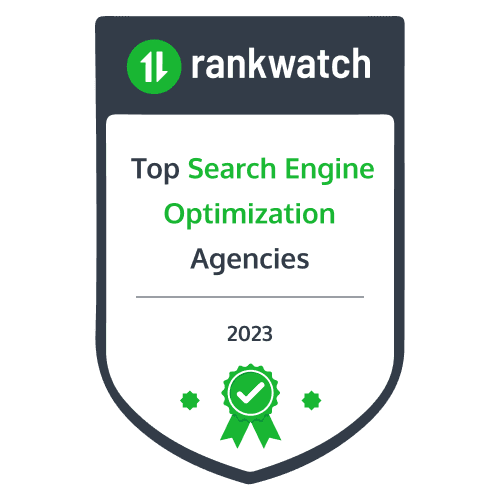As the business world continues to change and evolve, companies need to stay updated on the latest technologies to remain competitive. By 2023, you can expect essential business technologies to adopt artificial intelligence (AI), blockchain technology, access to cloud quantum computing, AR, VR, and MR. These technologies will provide businesses with increased efficiency, better customer experience, improved security, and overall cost savings. Companies that take advantage of these trends early on will have a competitive edge that could last well into the future. Whether you are a small business or a large enterprise, these trends are essential for staying ahead of the competition and staying relevant in the ever-changing digital landscape.
Artificial Intelligence


It refers to the development of computer systems that can perform tasks that typically require human intelligence, such as recognizing speech, making decisions, and solving problems. AI systems can be designed to mimic human reasoning, perception, and learning.
Artificial Intelligence (AI) has been a rapidly growing business technology trend for the past few years and is expected to continue its growth trajectory in 2023 and beyond. As a result, companies across various industries invest heavily in AI solutions to improve operational efficiency, enhance customer experiences, and gain a competitive edge in their respective markets.
Some of the AI-powered business technology trends that you can expect to emerge in 2023 include:
- AI-powered virtual assistants: Virtual assistants powered by AI will become increasingly sophisticated, enabling companies to automate routine tasks and provide customers with personalized support.
- Intelligent automation: Companies will adopt AI-powered automation to streamline their processes and increase operational efficiency.
- Predictive analytics: AI-powered predictive analytics will enable companies to gain insights into customer behavior and make more informed business decisions.
- Natural language processing: Companies will use AI-powered natural language processing to automate customer service interactions and provide more personalized support.
ChatGPT


It is one of the most popular AI software in the current scenario. Open.ai developed it, which is an independent research organization founded in 2015. It is a company dictated to advance AI. Even Dall-E, developed by open.ai that converts text into images, is an exciting development as it uses a transformer-based architecture, a type of neural network that has proven to be highly effective in natural language processing tasks. Open.ai has collaborated with Microsoft, and Microsoft owns 49% of open.ai. Together they are working towards the frontier of cloud supercomputing technology. Microsoft is also planning to involve this in Microsoft Office, a collaboration worth seeing.
Blockchain Technology


Blockchain technology is one of the most secure ways to store data. That is because you cannot alter the previous data. You can best describe it as data that can only be added to and not taken away. Hence, the word ‘chain’. They are also consensus-driven so that no entity can control data. Since they are highly secure, they have massive potential in the finance or healthcare industries. It is also used in supply chain management as it improves transparency and efficiency, making it easier for businesses to track their goods. They also eliminate the need for intermediaries making peer-to-peer transactions more efficient.
Access to cloud quantum computing
Quantum computing is like a super library that stores information differently and powerfully, which helps solve complex problems in cryptography, chemistry, finance and optimization. It offers exponential improvements in computational power when compared to regular computers. Cloud quantum computing essentially means using quantum computing resources and services through the cloud rather than having expensive hardware and infrastructure. It allows businesses to use quantum computing without too much investment. Here is how you can use quantum computing in different business sectors:
- Optimization: You can use quantum computing to solve complex optimization problems, such as scheduling, logistics, and resource allocation, allowing businesses to improve their operations and reduce costs.
- Financial modeling: It can also be used for financial modeling and risk analysis, enabling businesses to make better investment decisions and manage financial risk.
- Cryptography: You can use quantum computing to enhance the security of encryption algorithms, improving the safety of sensitive data and protecting against cyber threats.
Augmented Reality (AR), Virtual Reality (VR), and Mixed Reality (MR)
They are technologies that allow users to interact with digital content in an immersive environment. They provide businesses with new ways to engage with customers and improve their operations. These technologies can be used for product demonstrations, training, simulation, and visualization, among other things, allowing businesses to create more immersive and interactive experiences for their customers.
- Augmented Reality: AR is a technology that enhances the real-world environment with digital content, such as images, videos, and 3D models. You can use AR in business to provide interactive product demonstrations, training, and product visualization, among other things. For example, furniture retailers can use AR to allow customers to visualize how furniture will look in their homes before making a purchase.
- Virtual Reality: VR creates an entirely digital environment that makes user interactivity interesting. You can use this technology in business for training, product demonstrations, and simulations, among other things. For example, automobile manufacturers can use VR to train workers to assemble a car or to allow customers to test drive a car virtually before making a purchase.
- Mixed Reality: MR combines the real and digital worlds, allowing users to interact with digital content in a real-world environment. You can use MR in business to create interactive product demonstrations, training, and simulations, among other things. For example, a construction company can use MR to visualize how a building will look and function before you complete the construction.
Conclusion:
Artificial intelligence (AI) is the future. Many companies are working hard on developing applications that allow us to talk to machines naturally. Many technologies employ AI, including natural language processing, recommendation systems, chatbots, image recognition, and self-learning systems. You can see the use of AI in healthcare, education, research, and many other fields that require human interaction. AI will continue to play a significant role in the future of business and its integration into companies’ day-to-day operations.
When it comes to AI, the next big step is developing intelligent machines. But first, we need to learn how to create intelligent machines and machines that help us understand how to integrate technology to work hand in hand.
We also recommend reading “Must-Have Technologies For Business: Tips from the Experts” published by Porch in collaboration with Markitome.
Check out our blogs for more such content!



We hope you’re enjoying reading our blogs… Don’t forget to secure your browsing experience with Nord VPN. Click the banner below to learn more
More To Explore
Redefining Digital Marketing in 2024: 10 Game-Changing Trends
In the ever-evolving world of digital marketing, staying ahead of the curve is essential. As we approach 2024, it’s crucial to be aware of the
SEO Mania-7 Proven Strategies for Explosive SEO Growth in 2024
Understanding the Importance of SEO in 2024 In the ever-evolving world of SEO, staying ahead of the curve is crucial to your online success. As